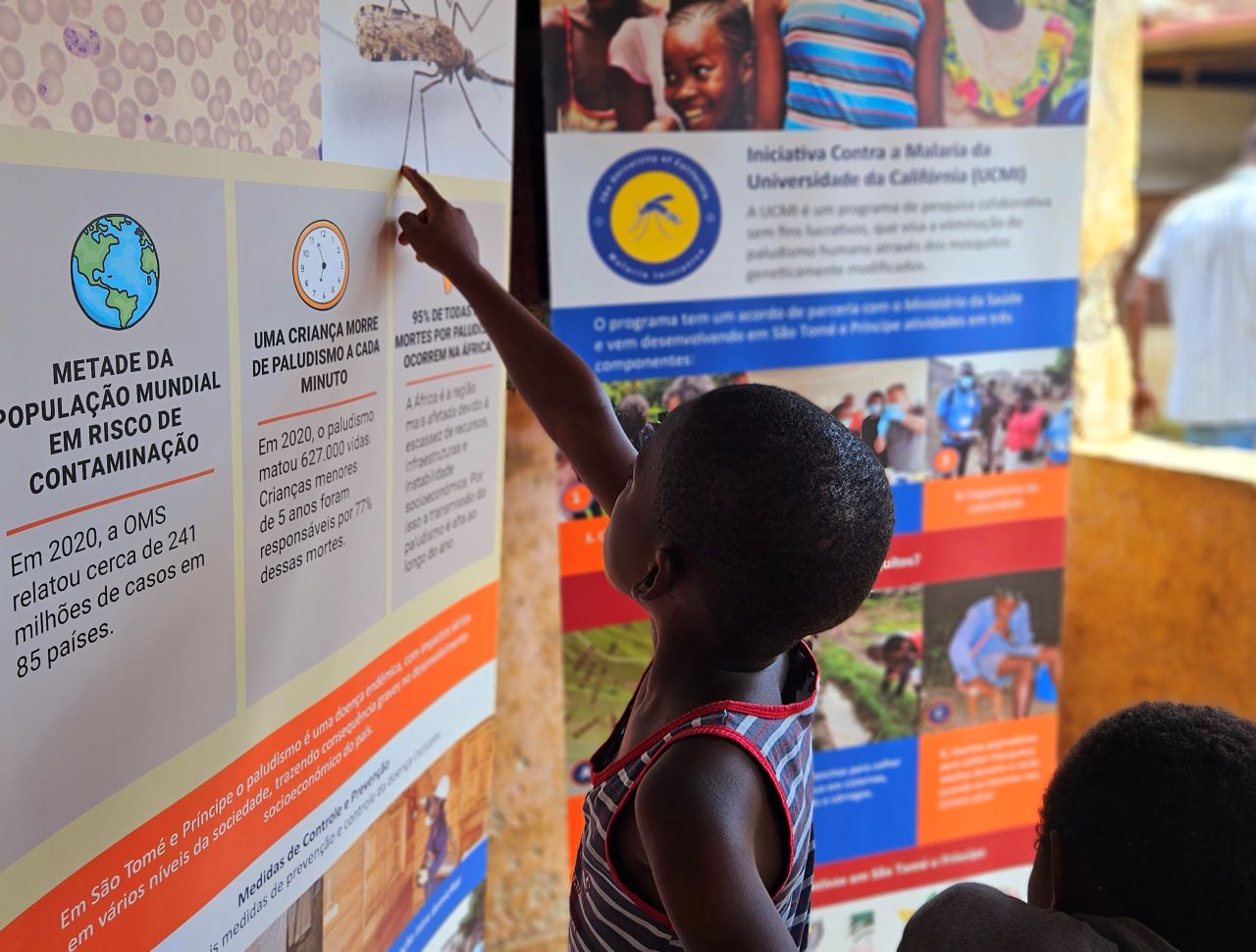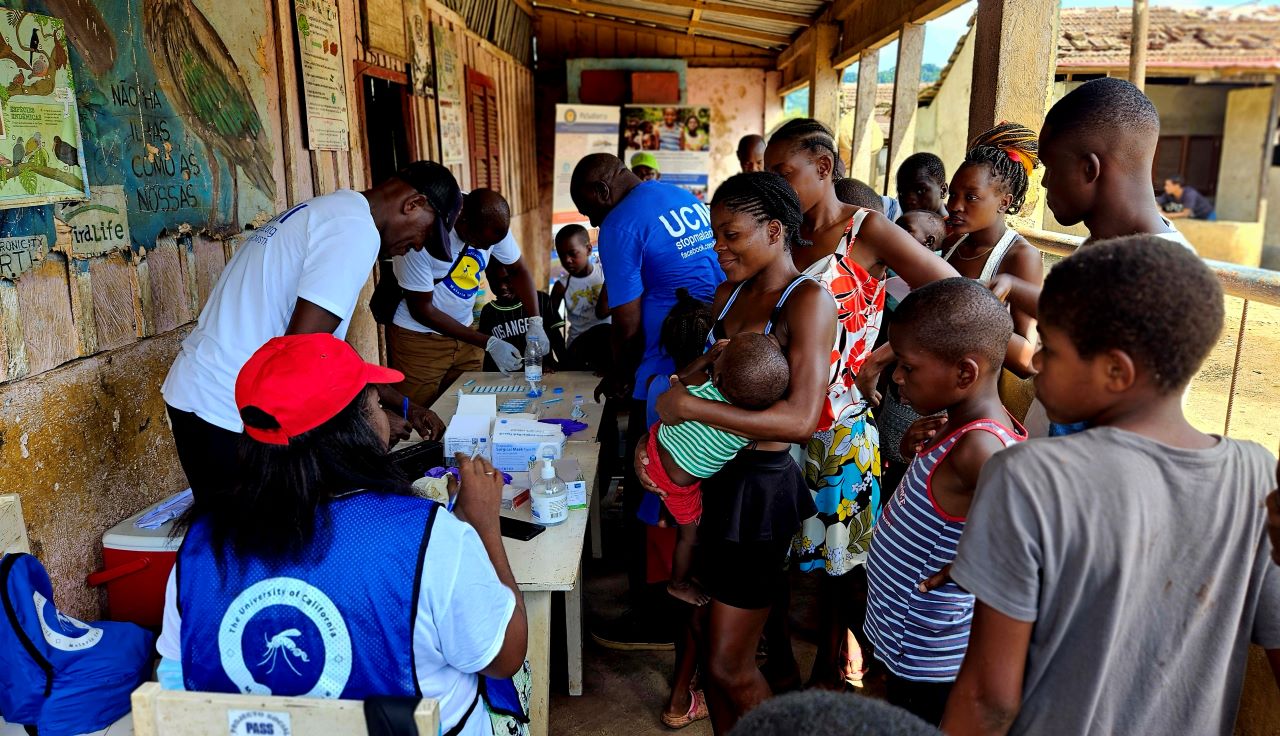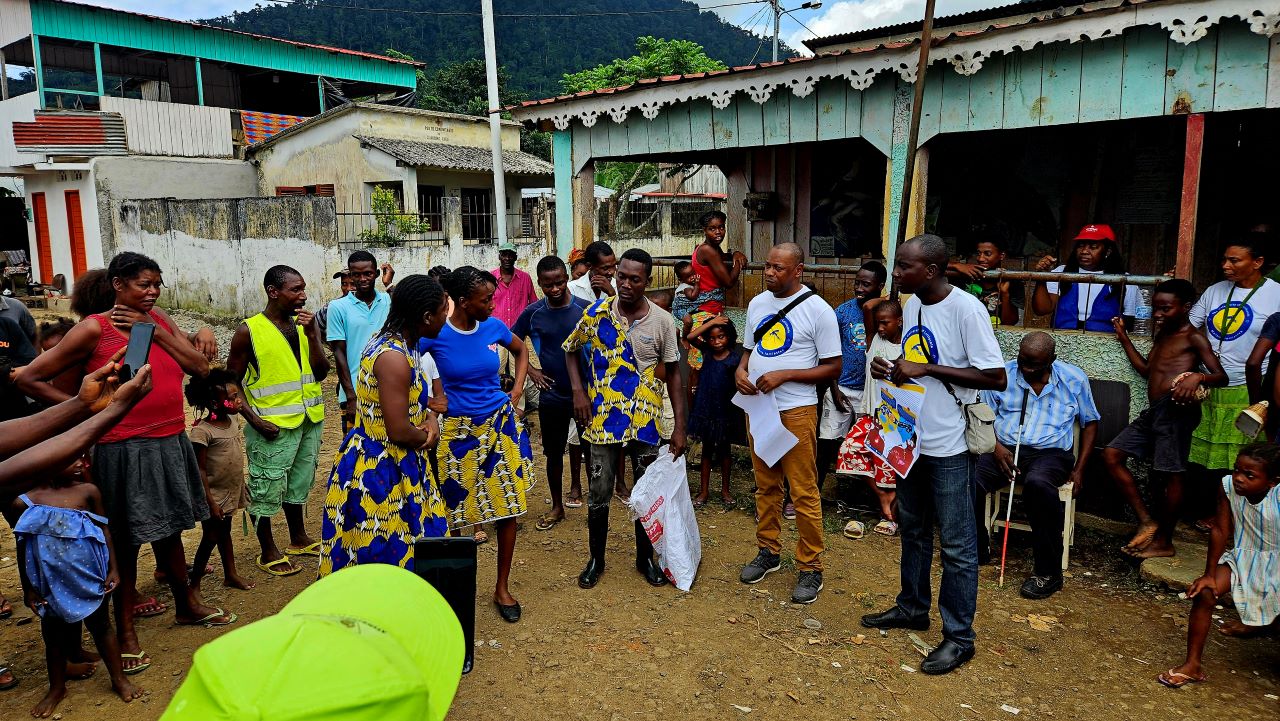The World Health Organization (WHO) recently published its Global Malaria Programme operational strategy 2024–2030. The document builds on the previously adopted Global technical strategy for malaria 2016-2030, and sets out priorities and key activities needed to support achievement of its ambitious goals. Progress in the fight against malaria has stalled in recent years, and the world is currently off track to meet the GTS 2030 targets. The new operational strategy recognizes that a “business as usual” approach to malaria will not be enough and that “changing the trajectory of current malaria trends will require urgent and concerted efforts across the malaria ecosystem”.

A child looking at UCMI’s awareness raising posters on malaria as part of a community fair organized in the neighborhood of Claudino Faro in São Tomé and Príncipe. Photograph: UCMI
Progress has particularly levelled-off in high-burden countries in sub-Saharan Africa, where young children and pregnant women living in poverty are most vulnerable. Existing interventions and tools are facing the risk of reduced effectiveness due to quality concerns and biological threats, such as drug and insecticide resistance. These threats are compounded by funding shortfalls and the impacts of climate change, which is affecting the geographical range, seasonality and transmission of malaria.
Against this backdrop, the strategy outlines the Global Malaria Programme’s priorities for 2024-2030 and sets four strategic objectives, as well as a fifth cross-cutting pillar focused on context-based country support:
- Develop and disseminate norms and standards;
- Stimulate the development and timely introduction of new tools and innovation;
- Promote the use of strategic information for impact;
- Provide technical leadership of the global response.
A high-level review of the root causes behind the stalled progress was conducted to inform the operational strategy. Using an adapted Tanahashi framework, the review revealed significant challenges in delivering interventions in a way that maximizes their coverage (e.g. availability, accessibility, acceptability) to the millions in need. Changing course will require a comprehensive approach that addresses the determinants of malaria, tackles factors that make people susceptible to the disease and improves the delivery of quality services and interventions.
According to the strategy, “while more progress in malaria control and prevention can be made with currently available tools, new interventions will be essential to counter emerging threats, accelerate progress towards global targets, and achieve elimination”. One of the innovative tools in the pipeline mentioned in the strategy are genetically modified mosquitoes.

UCMI’s engagement team distributing rapid malaria diagnostic tests in São Tomé and Príncipe, in partnership with health delegates from the Cantagalo District. Photograph: UCMI
I joined the University of California Malaria Initiative (UCMI) in 2021. Our goal is to contribute to the elimination of malaria using genetically modified mosquitoes with gene drive that are unable to transmit the malaria parasite. One of the advantages of gene drive technologies is that, because the mosquitoes themselves do the work, they have the potential to reach everyone in the community, regardless of their geographic location, their gender, or their social status. As an area-wide intervention, gene drive technologies could offer protection to the most vulnerable and ensure that the strides we make in combating malaria benefit everyone, especially those most at risk. Because they are self-sustaining, gene drive technologies could also offer a cost-effective and sustainable approach to control malaria, which could benefit communities where existing tools may be costly and difficult to implement at scale.
The strategy also underscores the need to draw on the collective strength of the malaria ecosystem and states that partners must continue to place individuals at the centre of planned initiatives and ensure that interventions are well suited to community contexts. My work as an Engagement Manager for UCMI in São Tomé and Príncipe involves leading UCMI’s national engagement team in the development and implementation of awareness activities with community members and stakeholders. Our engagement activities include community meetings, workshops, stakeholder meetings, educational programs, one-on-one meetings with residents and community assessments to ensure project transparency and support continuous knowledge sharing.

UCMI’s engagement team conducting theater plays to engage communities in São Tomé and Príncipe. Photograph: UCMI
Through these encounters, we provide opportunities for community members to share suggestions and concerns about the technology and UCMI’s strategy. The feedback provided by community members and stakeholders is important and taken into consideration in the development of our research and engagement activities. In addition to the abovementioned engagement activities, UCMI has a big presence on social media, national TV and radio to ensure regular and consistent communication with all São Tomé and Príncipe citizens.
The new Global Malaria Programme operational strategy underscores the need for an urgent shift in the global malaria response which addresses the root causes of the disease and focuses on accessibility, efficiency, sustainability, equity, and integration. Scalable and equitable malaria-control tools such as genetically modified mosquitoes hold promise and could particularly benefit communities most burdened by malaria.
